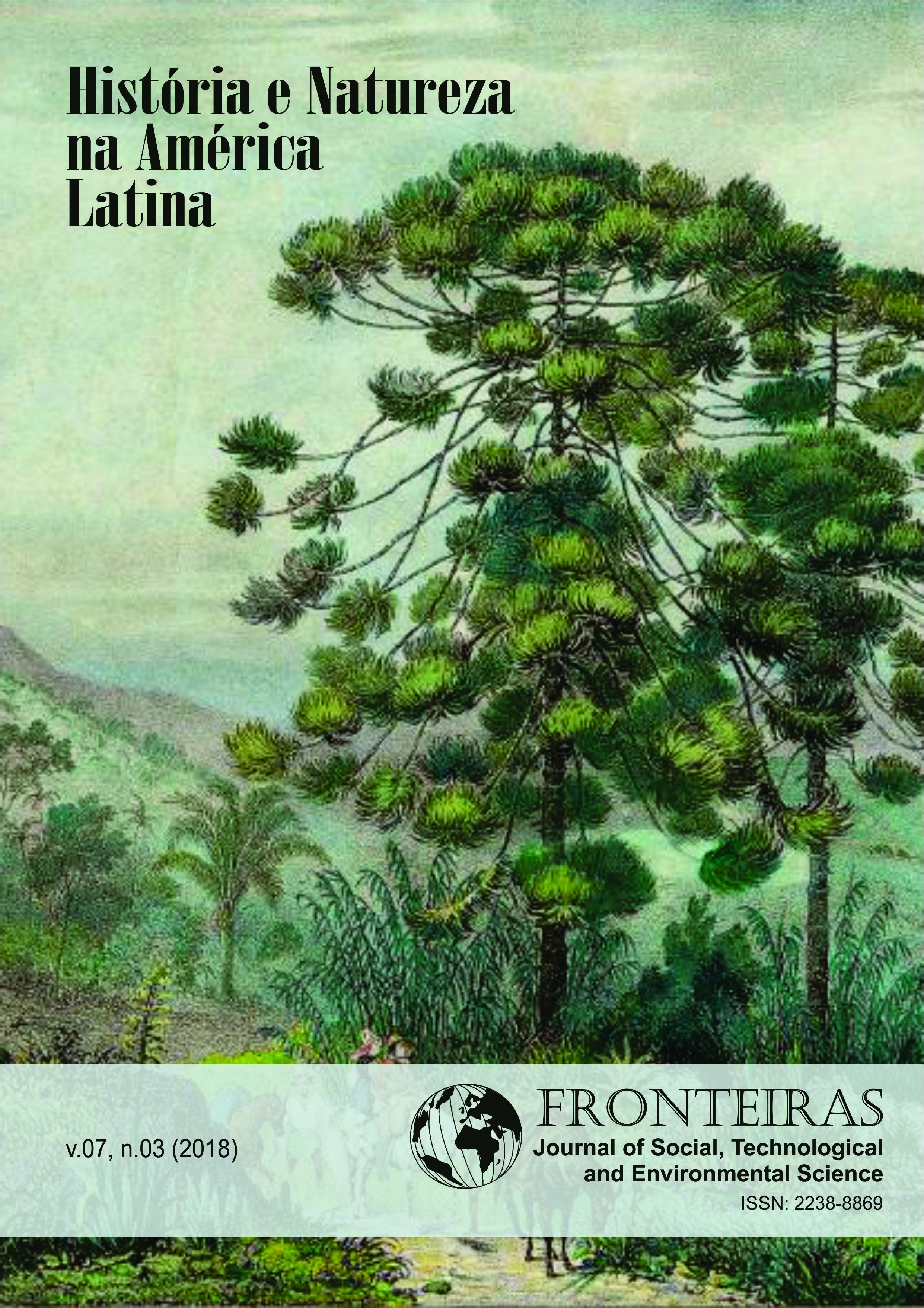An Appraisal of Environmental Microhistory: Epistemological and Historiographical Insights
DOI:
https://doi.org/10.21664/2238-8869.2018v7i3.p262-274Keywords:
Microhistory, Environmental History, Indiciary ParadigmAbstract
The late flourishing of environmental history has been accompanied by attempts to combine it with a microhistorical approach, improving our understanding of specific events of the past as well as pointing to relevant historical insights at the macro level, which might inform policy-driven contemporary debates on environmental issues. Therefore, this article attempts to shed light on the epistemology and historiography of microhistory, stressing its basis on the indiciary paradigm as avowed by the Italian microhistorian Carlo Ginzburg, its emphasis on context, relations and connections, and its potential for unveiling new information at the macro level. It is asserted that these features make the microhistorical approach an adequate methodological tool to environmental history, anticipating a fruitful future for environmental microhistory.
References
Arndt M. Environmental History. Docupedia-Zeitgeschichte [serial on the internet]. 2016 Aug [cited 2017 Jun 20]; 25 p. Available from: http://docupedia.de/zg/Arndt_environmental_history_v3_en_2016
Beach CJW 1998. Beneath the waters: a microhistory of Ootsa Lake, a northern Eurocanadian community, MA Dissertation, University of Northern British Columbia, Prince George, 149 pp.
Benjamin W 1999. The Arcades Project, The Belknap Press of Harvard University Press, Cambridge, 1088 pp.
Bonnell JL 2010. Imagined futures and unintended consequences: an environmental history of Toronto’s Don River Valley, PhD Thesis, University of Toronto, Toronto, 405 pp.
Braudel F 1980. On History, The University of Chicago Press, Chicago, 236 pp.
De Certeau M 1992. The Writing of History, Columbia University Press, New York, 368 pp.
De Certeau M 2000. The Possession at Loudun, The University of Chicago Press, Chicago, 266 pp.
Douki C, Minard P 2007. Global history, connected histories: a shift of historiographical scale? Rev Hist Mod Contemp 54(4bis): 7-21.
Epple A 2012. The Global, the Transnational and the Subaltern: the limits of history beyond the national paradigm. In A Amelina, DD Nergiz, T Faist, NG Schiller, Beyond Methodological Nationalism, Routledge, New York, p. 241-276.
Epple A 2012a. Globale Mikrogeschichte: auf dem Weg zu einer Geschichte der Relationen. In E Hiebl, E Langthaler, Im Kleinen das Große suchen: Mikrogeschichte in Theorie und Praxis, Hans Haas zum 70. Geburtstag, Studien Verlag, Innsbruck, p. 37-47.
Ginzburg C 1979. Clues: roots of a scientific paradigm. Theory Soc 7(3): 273-288.
Ginzburg C 1980. The cheese and the worms: the cosmos of a sixteenth-century miller, The Johns Hopkins University Press, Baltimore, 177 pp.
Ginzburg C 1989. Mitos, emblemas, sinais: morfologia e história, 2nd Ed., Companhia das Letras, São Paulo, 288 pp.
Ginzburg C 1991. Checking the evidence: the judge and the historian. Crit Inquiry 18(1): 79-92.
Ginzburg C 1993. Microhistory: two or three things that I know about it. Crit Inquiry 20(1): 10-35.
Levi G 1991. On microhistory. In P Burke, New Perspectives on Historical Writing, Polity Press, Cambridge, p. 93-113.
Magnússon SG 2003. The singularization of history: social history and microhistory within the postmodern state of knowledge. J Soc Hist, 36(3): 701-735.
McNeill JR 2003. Observations on the nature and culture of environmental history. Hist Theory 42(4): 5-43.
Neves GP 2011. História, teoria e variações, Contracapa, Rio de Janeiro, 328 pp.
Peltonen M 2001. Clues, margins and monads: the micro-macro link in historical research. Hist Theory 40: 347-359.
Petrić H 2004. Environmental micro-history of a multiple borderland: Podravina’s Torčec in the second half of the 18th century. Podravina 3(6): 63-70.
Quadrelli A, Cardoso MHCA, Castiel LD 2014. On the indiciary nature of the clinical method: an anthropological view of a published case study. Salud Colect 10(2): 157-169.
Revel J 2010. Micro-história, macro-história: o que as variações de escala ajudam a pensar em um mundo globalizado. Rev Bras Educ 15(45): 434-444.
Roberts SE 2010. Pines, profits, and popular politics: responses to the White Pine Acts in the colonial Connecticut River Valley. N Engl Q 83(1): 73-101.
Rosenthal G 2017. A storm in Sāmoa: an environmental microhistory. Rethink Hist 21(1): 2-27.
Sandwell RW 2009. History as experiment: microhistory and environmental history. In A MacEachern, WJ Turkel, Method and Meaning in Canadian Environmental History, Nelson, Toronto, p. 124-138.
Scoones I 1999. New ecology and the social sciences: what prospects for a fruitful engagement? Annu Rev Anthropol 28: 479-507.
Sodikoff G 2007. An exceptional strike: a micro-history of 'people versus park' in Madagascar. J Political Ecol 14: 10-33.
Szijártó IM 2016. The capacities of microhistory. Ethnog Folk Carpath 19: 191-197.
Worster D 1988. The ends of the earth: perspectives on modern environmental history, Cambridge University Press, New York, 348 pp.
Downloads
Published
How to Cite
Issue
Section
License
This journal offers immediate free access to its content, following the principle that providing free scientific knowledge to the public, we provides greater global democratization of knowledge.
As of the publication in the journal the authors have copyright and publication rights of their articles without restrictions.
The Revista Fronteiras: Journal of Social, Technological and Environmental Science follows the legal precepts of the Creative Commons - Attribution-NonCommercial-ShareAlike 4.0 International. 


